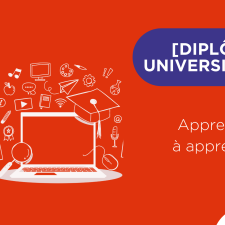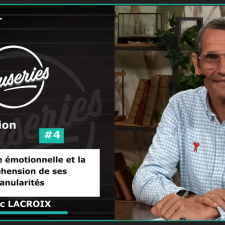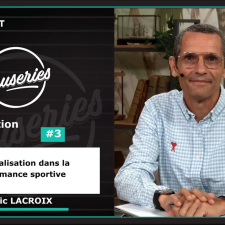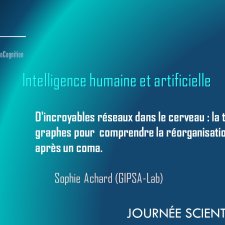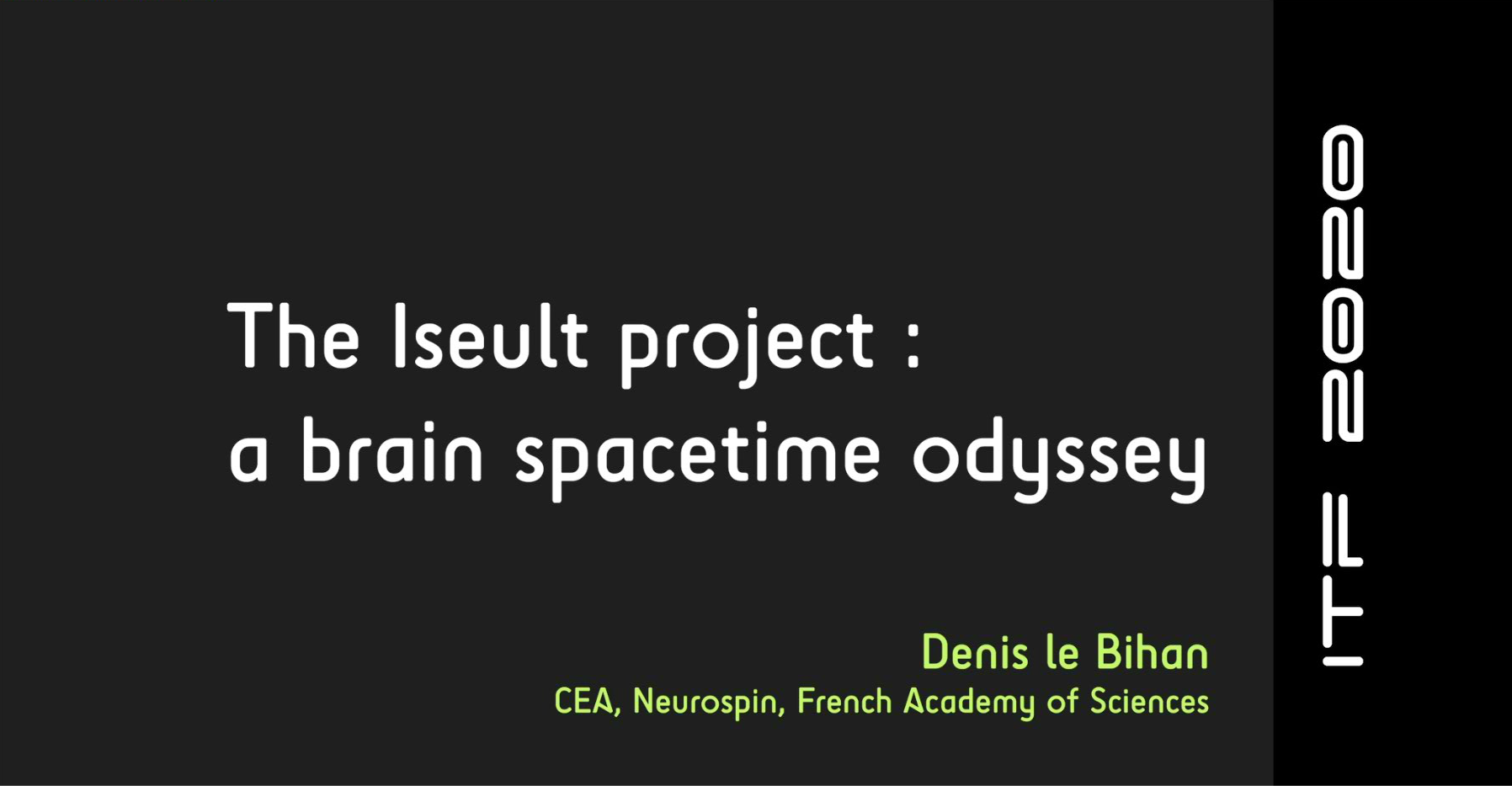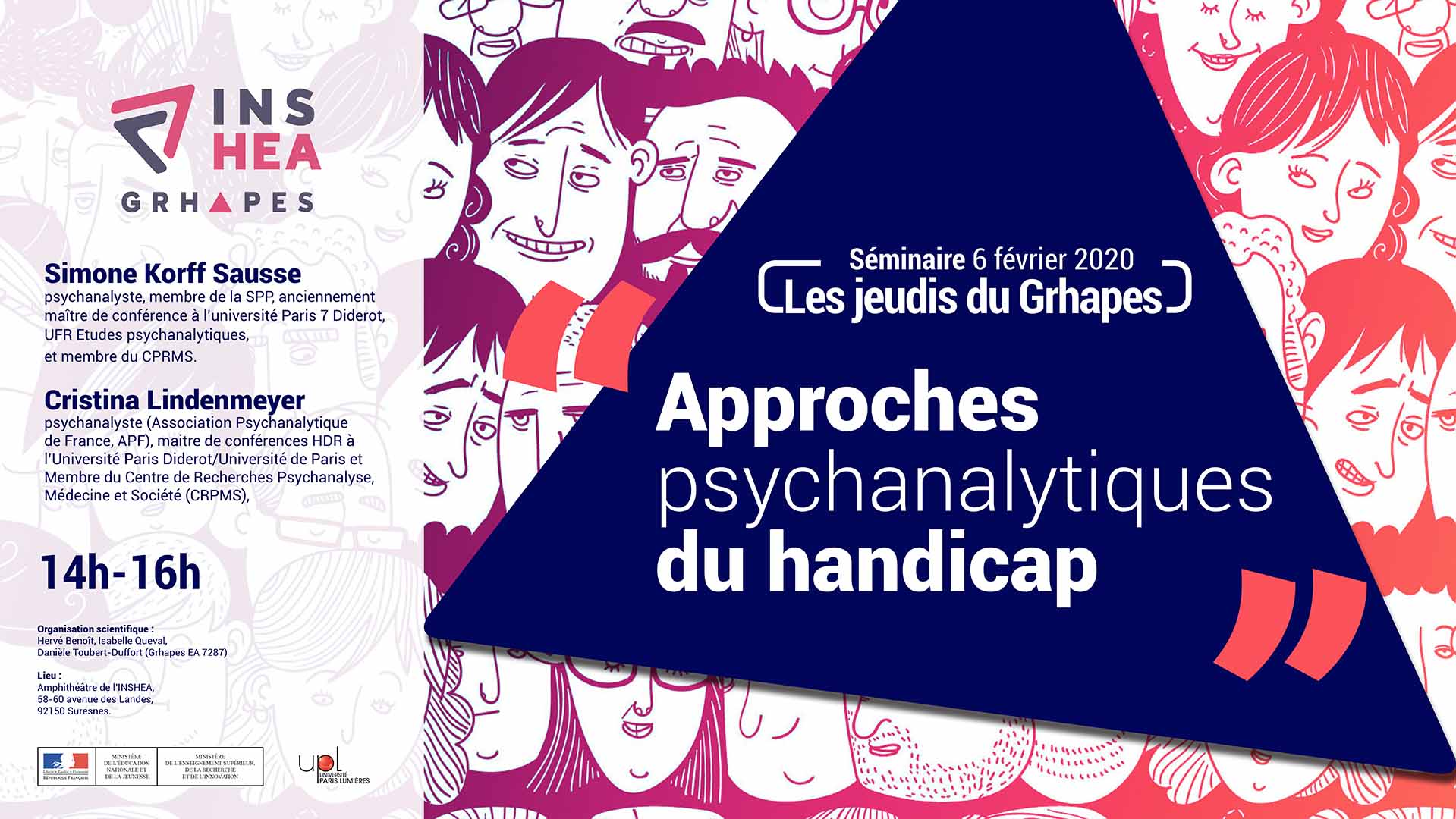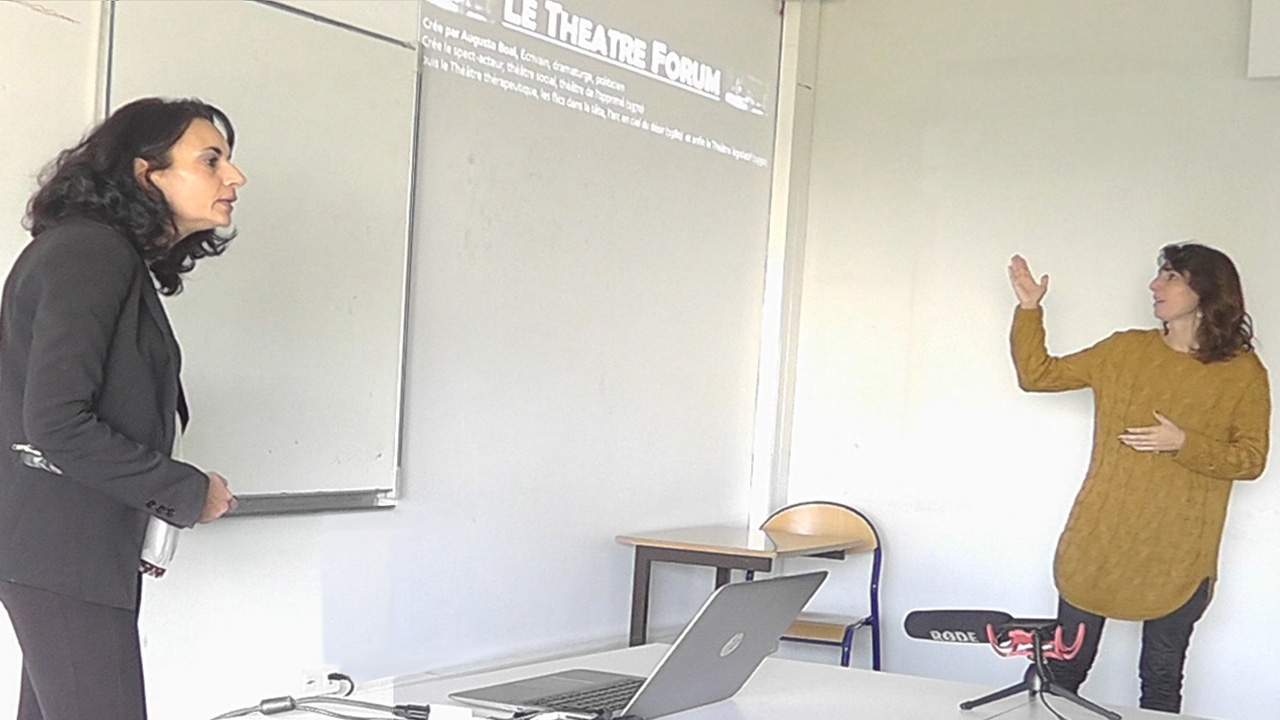Notice
Social Minds
- document 1 document 2 document 3
- niveau 1 niveau 2 niveau 3
Descriptif
Interacting minds: combining art and science to explore the social, dynamic, and embodied nature of human cognition
In this series of three seminars, we will discuss the view of "extended cognition", or how to bring social interactions, the dynamic feedback loops between us and our environments, and our bodies into the study of the mind. Particular focus will be in how the cross-exposure from art and science can reveal phenomena about our minds, sociality and interactions that would be impossible for either to reach alone.
We will look at "improvised interactions" in music, dance, and decision-making, peruse literature from neuroscience, social psychology, cognitive science and philosophy, and see how recent scientific advances (both theoretical and methodological) have changed our view of how the mind works, and form ideas of how we should study it. We will exchange experiences and ideas about how to best combine artistic and scientific practices and ideas.
Seminar 1: Social minds (2.11.)
What does it mean if we see sociality as the "default mode" of humans interacting with their environment and not as the top end of a tall ladder of elementary, individual functions? How are art and empathy linked?
Seminar 2: Dynamic minds (15.11.)
Statics of the dynamic mind: what changes if we look at the social minds in motion? In psychology and neuroscience we talk of states, e.g. "emotional states", or measure behaviours in trials where we assume the behaviour to switch on at the beginning and continue until the beep at the end. Performing arts know better: being static is a statement; it is not natural; it might even be dead.
Seminar 3: Embodied minds (22.11.)
One of the first extensions to cognitive science was the embodied approach: the mind/brain is a part of a body, and the body is not only for carrying the brain around. But embodiment often seems like a popular but empty buzzword; having learned so much about the mind since the inception of embodied cognition, what should embodied cognition 2.0 look like?
Intervention / Responsable scientifique
Dans la même collection
-
Embodied minds
HimbergTommiInteracting minds: combining art and science to explore the social, dynamic, and embodied nature of human cognition In this series of three seminars, we will discuss the view of "extended
-
Dynamic minds
HimbergTommiInteracting minds: combining art and science to explore the social, dynamic, and embodied nature of human cognition In this series of three seminars, we will discuss the view of "extended
Avec les mêmes intervenants et intervenantes
-
Embodied minds
HimbergTommiInteracting minds: combining art and science to explore the social, dynamic, and embodied nature of human cognition In this series of three seminars, we will discuss the view of "extended
-
Dynamic minds
HimbergTommiInteracting minds: combining art and science to explore the social, dynamic, and embodied nature of human cognition In this series of three seminars, we will discuss the view of "extended
-
ICI : De l'Improvisation Conjointe à l'Interaction
HimbergTommiBachrachAsafLutesClintFörgerKlausBigéRomainEn savoir plus sur la journée En savoir plus sur ICI
Sur le même thème
-
Diplôme Universitaire - Apprendre à apprendre
Présentation de la formation
-
L'exploration mentale #4 – Intelligence émotionnelle et la compréhension de ses granularités
LacroixÉricPorlierChristopheL'exploration mentale #4 – Intelligence émotionnelle et compréhension de ses granularités
-
L'exploration mentale #3 – La visualisation dans la performance sportive
LacroixÉricPorlierChristopheL'exploration mentale #3 – La visualisation dans la performance sportive
-
The coldness of the stone and the lightness of the bird: a memorial garden for the victims of Novem…
AccarainMadeleineTalk by Madeleine ACCARAIN (Wagon Landscaping, Paris), as part of the workshop "Memory, Place, and Material Culture", organized by John SUTTON, 2022-2023 research fellow at the Paris IAS, Emeritus
-
mark edmonds, building and belonging: architecture and memory in neolithic orkney
EdmondsMark R.SuttonJohnTalk by Mark EDMONDS, (Archeologie, York), in the context of the workshop "Memory, Place, and Material Culture", organized by John SUTTON, 2022-2023 research fellow at the Paris IAS, Emeritus
-
La théorie des graphes pour comprendre la réorganisation cérébrale après un coma.
AchardSophieLa théorie des graphes pour comprendre la réorganisation cérébrale après un coma.
-
Topological insights in neuroscience
Hess BellwaldKathrynOver the past decade, and particularly over the past five years, research at the interface of topology and neuroscience has grown remarkably fast. Topology has, for example, been successfully applied
-
Consommation ou sobriété : comment notre cerveau nous permet de choisir ?
GranonSylvieAu cours de cet exposé nous verrons comment les connaissances actuelles sur le fonctionnement cérébral et la prise de décision permettent d’expliquer comment se font les choix, leur diversité et ce
-
The Iseult project : a brain spacetime odyssey
Over the past ten years, Bio-Imaging translational research has experienced an unprecedented expansion: ten years of challenges, collaborations, success stories and significant advances, thanks
-
le langage totalitaire
Une théorie qui se prétend totalement explicative est une théorie totalitaire. Le langage est alors organisé autour d'une seule référence, qu'elle soit religieuse, laïque ou scientifique. Le chef, le
-
Les jeudis du Grhapes : Cristina Lindenmeyer
LindenmeyerCristinaDétail des interventions de la huitième séance du séminaire de recherche « Les jeudis du Grhapes » 2019-2020 « Altérité(s) et société inclusive » 6 février 2020 : « Approches psychanalytiques
-
Apprendre à apprendre : alliance des neurosciences et du Théâtre-Forum, un test d'approche multimod…
Morato-LallemandFrançoiseGrangetteLaurèneUne étude de l’OVE, publiée en avril 2009, recensant les différentes situations d’abandon des étudiants à l’université montre que, dans une large majorité de cas, les étudiants sont en difficulté





